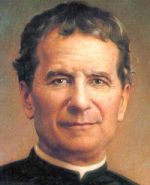Catholic Dictionary
Find accurate definitions of over 5,000 Catholic terms and phrases (including abbreviations). Based on Fr. John Hardon's Modern Catholic Dictionary, © Eternal Life. Used with permission.
Random Term from the Dictionary:
ABRAHAM
Born in the twentieth or nineteenth century B.C., in Ur of the Chaldeans on the Euphrates River. His father, Terah, named him Abram. The family migrated to Haran, where Terah died (Genesis 11:26-31). At God's behest, Abram, his wife, Sarah, his nephew, Lot, and all their followers moved on to Canaan (Genesis 12:4). When Abram was ninety-nine years old, God made a covenant with him, changing his name to Abraham and promising to make him the "father of a multitude of nations . . . [Genesis 17:1-5] I will make you into nations and your issue shall be kings . . . I will give to you and your descendants the land you are living in, the whole land of Canaan, to own in perpetuity, and I will be your God" (Genesis 17:5-8). Hence he has been called the founder of the Hebrew people. Abraham's dedication to the will of God was tested when he was told to take his son, Isaac, to the land of Moriah (which later became the site of the Jerusalem temple) and sacrifice his son as a burnt offering. He obeyed without hesitation, but Isaac was spared at the last moment (Genesis 22). In his final days Abraham arranged to have his son marry Rebekah, one of his kinfolk (Genesis 24), and left Isaac all his possessions before he died at the age of one hundred seventy-five (Genesis 25).






